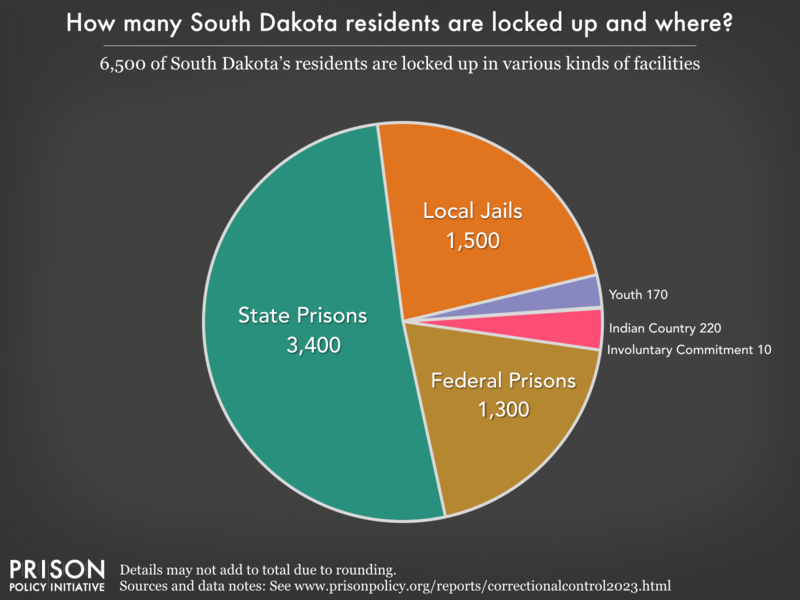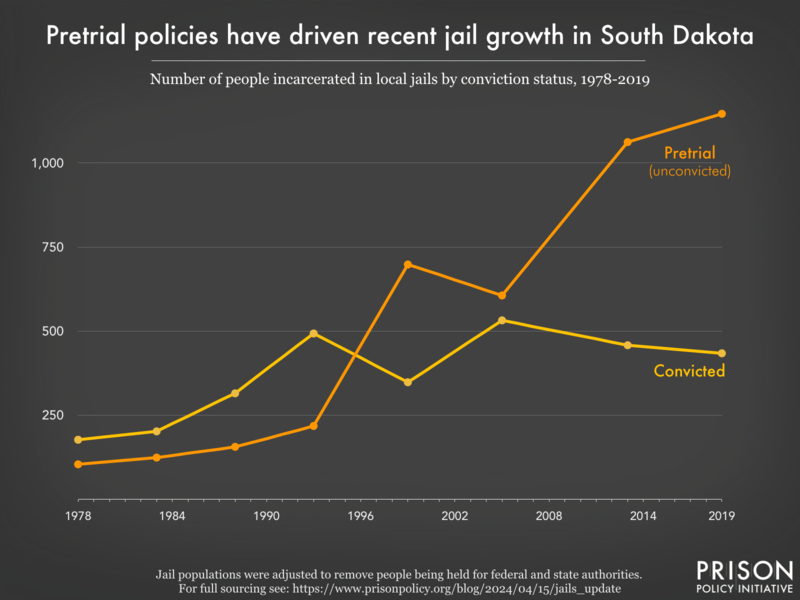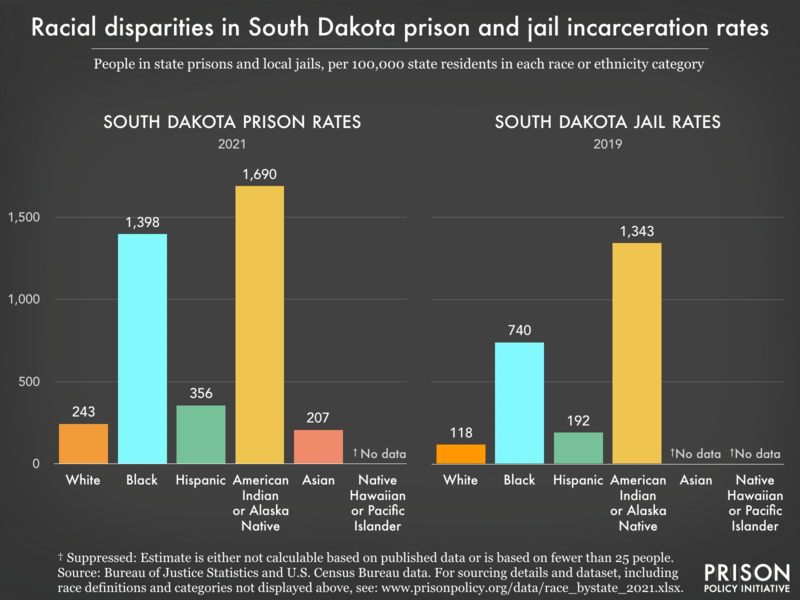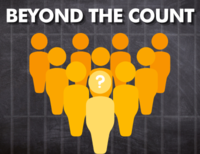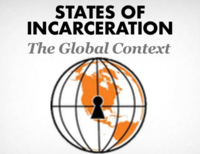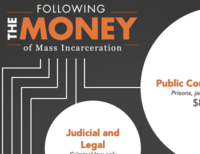Thank you,
—Peter Wagner, Executive Director
Donate
South Dakota profile
South Dakota has an incarceration rate of 812 per 100,000 people (including prisons, jails, immigration detention, and juvenile justice facilities), meaning that it locks up a higher percentage of its people than any independent democratic country on earth. Read on to learn more about who is incarcerated in South Dakota and why.
6,500 people from South Dakota are behind bars
Additionally, the number of people impacted by county and city jails in South Dakota is much larger than the graph above would suggest, because people cycle through local jails relatively quickly. Each year, at least 25,000 different people are booked into local jails in South Dakota.
Rates of imprisonment have grown dramatically in the last 40 years
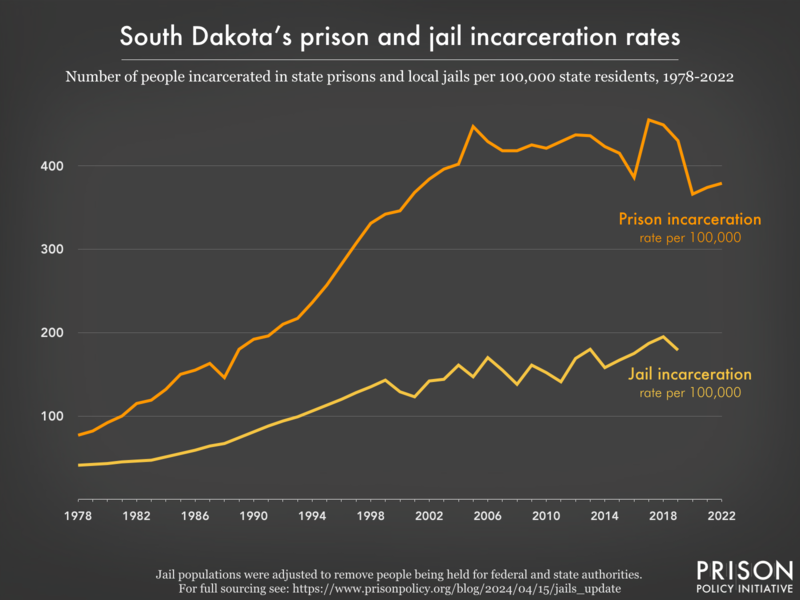
- total numbers rather than rates.
- Women’s prisons: Incarceration Rates | Total Population
- Men’s prisons: Incarceration Rates | Total Population
Today, South Dakota’s incarceration rates stand out internationally

People of color are overrepresented in prisons and jails
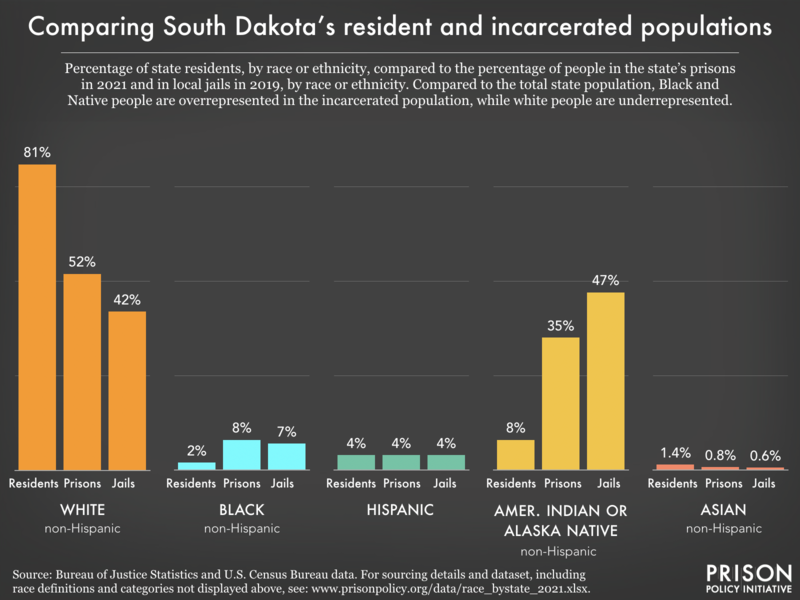
South Dakota's criminal justice system is more than just its prisons and jails
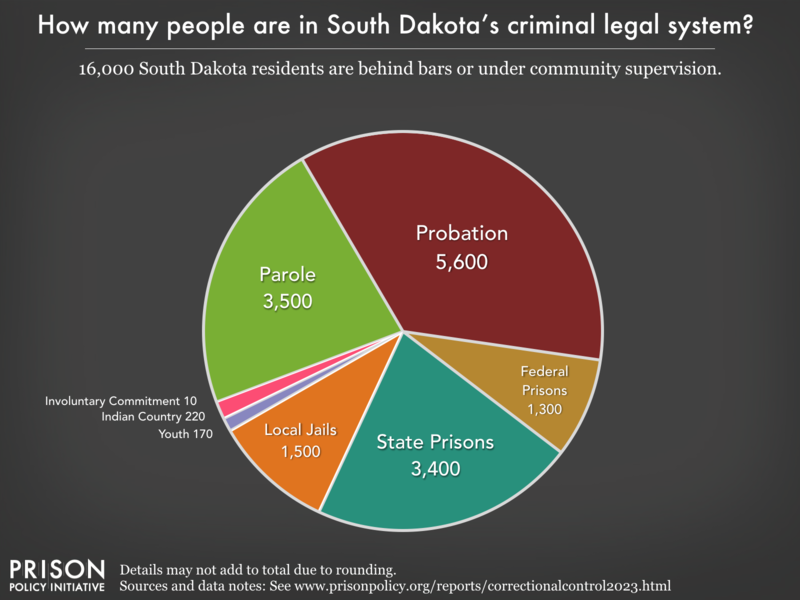
Reports and briefings about South Dakota's criminal legal system:
Filter to show
- People on probation in South Dakota are saddled with onerous rules and conditions they must follow every day or risk incarceration.
- Prisons in South Dakota have tablets, but they may be being used to restrict incarcerated people’s access to books and sap them of the little money they have.
- With an incarceration rate of 812 per 100,000 residents, South Dakota locks up a higher percentage of its people than any independent democratic country on earth.
- After the Dobbs’ decision, striking down Roe v. Wade, South Dakota totally banned abortion, putting access to the service effectively out of reach for the 2,192 women on probation or parole in the state who also face travel restrictions.
- 73% of people in South Dakota jails have not been convicted of a crime, meaning they're legally innocent. There are simple steps the state can take to reduce this number. Why isn't it?
- South Dakota releases roughly 52,337 men and 18,930 women from its prisons and jails each year. What is it doing to support them upon reentry?
- South Dakota is one of a handful of states passing "tough on crime" laws straight out of the '90s
- Black people in South Dakota are incarcerated at a rate 5.8 times higher than white people.
- South Dakota's choice to criminalize "failure to appear" may be hurting public safety
- The cost of incarcerating older people is incredibly high, and their risk of reincarceration is incredibly low, yet 11% of people in South Dakota prisons are over the age of 55. Why is the state keeping so many older people locked up?
- South Dakota makes it difficult or even risky for incarcerated journalists to tell their stories.
- In South Dakota, 6,500 people are incarcerated and another 9,100 are on probation or parole.
- South Dakota charges up to 25¢ for an e-message to or from prison.
- Jails in South Dakota charge up to $3.15 for a 15-minute phone call, reaping profits for companies, while prisons charge 90¢ for a 15-minute call.
- Bail companies in South Dakota have a track record of avoiding accountability, our report All Profit, No Risk and review of state-by-state evidence show
- How the end of Roe v. Wade will impact the 552 women on probation and parole in South Dakota
- 28% of corrections officers in South Dakota quit their job in FY2020.
- South Dakota suspended its $2 medical copays in prisons at the beginning of the pandemic for flu related medical visits — but should eliminate them completely.
- People in South Dakota prisons must pay for hygiene items and other basics if they have more than $1.00 in their account. They must pay the state back for any items they receive.
- South Dakota prisons charge families up to a 16% fee to transfer money to an incarcerated loved one.
- We gave South Dakota a failing grade in September 2021 for its response to the coronavirus in prisons.
- South Dakota hurts jury diversity by excluding people with felony records
- How many COVID-19 cases in South Dakota communities can be linked to outbreaks in correctional facilities? (data from our report Mass Incarceration, COVID-19, and Community Spread)
- We graded the parole release systems of all 50 states - South Dakota gets a D
- The hidden costs in South Dakota’s “no-cost” prison tablet contract
- South Dakota incarcerates women at a rate of 232 per 100,000 residents — higher than any democratic country on earth.
- People in South Dakota prisons earn as little as 25¢ an hour for their work.
- Local governments still struggling with Census' prison counts
Other resources
- Research on South Dakota in our Research Library
